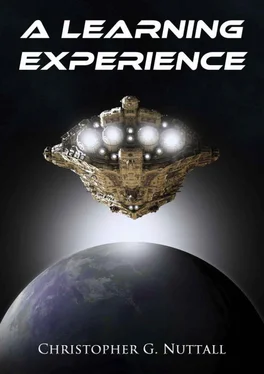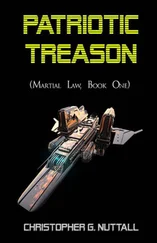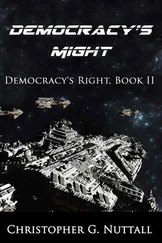A devilishly cunning plan , he thought. The President makes changes he desperately needs to make, all the time protesting his innocence. How very clever!
The Bahraini leaned forward. “We have agreed there is a problem,” he said. “But what do we do about it?”
“You should start thinking about running for your lives,” the Iranian sneered. “Your master may not be able to protect you for much longer.”
The Foreign Minister sighed. “We’re here to discuss possible courses of action,” he said. “I don’t think backbiting helps very much, does it?”
“No,” the Iranian said.
The Foreign Minister sighed. Bahrain was effectively under Saudi military occupation, even though few in the West were genuinely aware of it. The Sunnis might run the semi-island, but the vast majority of the population were Shia… and they wanted change. And Iran, he knew, had been quietly fuelling the flames ever since the damned Arab Spring. It caused no shortage of headaches for their enemies, while making it harder for the West to take its normal sanctimonious approach to the problem. After all, the Royal Family of Bahrain were tyrants.
“Most of our normal tools seem to have been disabled,” the Foreign Minister admitted. “I think American public opinion is moving in favour of fusion power.”
He sighed, again. The environmentalist movement had been quietly funded by the Middle East, in the hopes it would prevent any move to energy independence for the West. They’d spread horror stories about nuclear power, coal power and natural gas fracking… and now, with fusion power promising an unlimited supply of completely clean energy, the environmentalists had seized on it as mana from heaven. They might be useful idiots, but they weren’t paid agents. It would be incredibly difficult to convince them that fusion power was just as dangerous as fission power.
And if they see our fingerprints, they will use it to discredit the whole movement , he thought.
The discussion raged backwards and forwards, but nothing was really decided, apart from the agreement that they did have a problem. If the lunar settlers truly were independent, pressuring the American Government would be pointless. And even if they weren’t, the American government was big enough to make it difficult to pressure, particularly — as the Iranian pointed out — as Saudi Arabia’s influence was dropping fast. And there was the very real danger of picking a fight they couldn’t hope to win.
But, if fusion power continued to spread, they were doomed.
The Foreign Minister had no illusions. American oil companies would be hurt, true, but Americans were incredibly adaptable. They would survive. His country, however, would not survive if they couldn’t export vast amounts of oil. About the only other thing they exported in large quantities was Radical Islam and that was very much a two-edged sword. It was possible, he supposed, that the Chinese would want oil…
“The Chinese have their own problems with dongles,” the Iranian said, sardonically. “They may not be able to take your oil.”
The Foreign Minister winced. He’d met several Chinese technicians, men working in Saudi Arabia for princely wages, and they’d been incredibly clever and inventive. He had no doubt that Chinese technicians would be able to use the dongles themselves, even though the Great Firewall of China was far more capable than anything the Arab states had built for themselves. And then the simmering Chinese unrest might come out into the open and start demanding open change.
But that only took them back to the final question. What were they going to do?
“We need to take decisive action,” the Foreign Minister concluded. “And we will need your help.”
Carefully, he outlined the plan they’d devised.
It was a measure of their desperation, he realised afterwards, that no one — not even the Iranian — raised a serious objection. If the current state of affairs continued, they knew, all of their nations were doomed. Iran might end up with a new government, with the previous government purged by victorious rebels, but Saudi Arabia would sink without trace. The mansions and cities they’d built required constant maintenance to keep them in order. If they couldn’t afford to maintain them any longer, they would rapidly start to fall apart. Water supplies would come to an end. And then vast numbers of people would simply die.
“Desperate,” the Iranian said. “Desperate, but necessary.”
No one disagreed.
* * *
Washington didn’t seem to have changed much in the two months since the UN debate in New York, Gunter decided. There were a large mob of protesters outside the White House — several different groups, according to the Washington PD — and lobbyists were still making their endless rounds between Congress and their corporate employers. The only big difference, according to his sources, was the addition of a force field generator to protect the White House, even though the President was no longer Terrorist Target Number One. That honour had been taken by Steve Stuart.
He smiled at the thought as he stepped into the lobby of the hotel and waited for security to buzz him through. Senator Cavendish seemed to prefer to use hotels, rather than establish his own home in Washington, although — as he was quite wealthy in his own right — Gunter suspected this worked out in his favour. He had room service at all hours, a discreet place to meet allies and enemies and a reasonable level of security. And, if someone didn’t take a close look at his expenses, it looked more humble than buying a mansion in one of America’s most expensive cities.
“Ah, Mr. Dawlish,” the Senator said, as the maid waved Gunter into the Senator’s suite. It was practically a luxury apartment in its own right. “Would you care for coffee?”
“Yes, please,” Dawlish said. He waited for the Senator to finish pouring two cups of coffee, then took a seat. “I was surprised you called me today.”
“I much prefer reading your work to that of the MSM,” the Senator said. “It’s either endless abuse or crawling, depending on which side you’re on. The bloggers are much more even-handed.”
That , Gunter knew, wasn’t entirely true. Bloggers could have a political slant just as easily as a hired reporter. But when there were no editors, it was easier to see the political slant for what it was and disregard it. And besides, most bloggers certainly tried to be even-handed, even if it didn’t quite work out.
“Thank you,” he said.
“I won’t lie to you,” Cavendish said, as he sat down. “Recent events have quite unsettled the GOP — and the Democrats too. Who knows what will be the end result of all this new technology?”
Gunter smiled. “A better world?”
“Perhaps, or a worse one,” Cavendish said. “What will happen to America if our best and brightest go into space? Would we be losing the talent we need to keep ourselves a First World nation?”
“Perhaps,” Gunter said. “Or perhaps we would be securing our future instead.”
He shrugged. Years ago, he’d read a research paper that asserted that Americans came from hardy stock. The first Americans — or at least the first settlers, seeing the paper didn’t seem to recognise the existence of the Native Americans — had been willing to leave Europe and make a new life in America, even though there had been a very high risk of death. Their descendents had a fire, the author had claimed, that their relatives in Europe lacked. He’d concluded by asserting that America needed an improved immigration policy to ensure that only those with the drive and determination to succeed were invited into the country.
Читать дальше












